Conservation technology is already transforming our understanding of climate change's impacts on key environments and species around the world, allowing us to monitor populations and their changing ranges, observe habitat destruction and events like coral bleaching over time, and study the aftermath of major climate disasters like bushfires.
Because climate change is a global challenge shared by all of us, with no species, habitat, or continent completely untouched by its impacts, it's more important than ever to unite the conservation tech users and makers who are already gathering critical data and forming innovative ideas to help us meet these challenges.
Whatever conservation technology you work with, and whatever your expertise may be, there is a place for you in the fight against climate change. This group is a place to brainstorm and collaborate, share experiences and commiserate about the challenges ahead, find reasons to be optimistic about technology's role in this fight, and hopefully spark ideas that can make a positive impact for the species and habitats that we protect.
Wondering how to get started in this group? Here are some examples of topics to kick things off:
- Do you have a case study or project update related to climate change impacts? (For example, have your study species' migratory patterns changed because of changing weather patterns? Did your Audiomoths or camera traps capture data on a climate-driven disaster? Have challenges like melting sea ice altered your research timelines or made it more difficult to study your species?)
- Do you have a question about how your expertise could fit into innovating climate change solutions? Or do you have data to share that could help someone else understand climate change impacts or address challenges?
- Do you have an innovative idea that could help combat climate change, but need input or skills from other members with expertise in different areas or with different tools?
- Do you have a great resource to share that could help other members learn something new about climate change technology?
This group is new to the WILDLABS platform and set to grow - we can't wait to see what resources you'll share, what projects you'll start, and what solutions you'll find together!
- @CathyNj
- | She
Catherine Njore is a seasoned Cartographer with over 17yrs experience and specializing in children cartography. She recently designed a Cartography: Fun with Maps Program(CFMP); a program that assists children to learn how to draw, read and use maps effectively.
- 1 Resources
- 8 Discussions
- 6 Groups
- @alexrood
- | she/her
World Wide Fund for Nature/ World Wildlife Fund (WWF)
I'm the WILDLABS Communications and Community Management Associate Specialist at WWF-US





- 26 Resources
- 15 Discussions
- 8 Groups
Spanish veterinarian interesting wildlife conservation
- 0 Resources
- 0 Discussions
- 9 Groups
- @EstherGithinji
- | She/Her
WILDLABS
I am the WILDLABS East Africa Conservation Technology Coordinator



- 99 Resources
- 23 Discussions
- 4 Groups
- @CourtneyShuert
- | she/her
I am a behavioural ecologist and eco-physiologist interested in individual differences in marine mammals and other predators
- 0 Resources
- 1 Discussions
- 4 Groups
Sustainability Manager for CERES Tag LTD. An animal health company; animal monitoring, conservation, & anti-poaching/ rural crime. Wildlife, livestock, equine & companion. #CeresTrace #CeresWild #CeresRanch




- 2 Resources
- 19 Discussions
- 24 Groups
- @emilydorne
- | she/her
DrivenData
Lead Data Scientist and developer of zamba, a tool for automatic species classification from camera traps
- 0 Resources
- 1 Discussions
- 5 Groups
- @AnnabelL
- | she/her
- 0 Resources
- 0 Discussions
- 10 Groups
Conservation Writer, Storyteller, & Digital Strategist
- 0 Resources
- 0 Discussions
- 5 Groups


- 0 Resources
- 18 Discussions
- 18 Groups
Msc student on wildlife management and conservation
- 0 Resources
- 0 Discussions
- 8 Groups
WILDLABS & Fauna & Flora
I'm the Platform and Community Support Project Officer at WILDLABS! Speak to me if you have any inquiries about using the WILDLABS Platform or AI for Conservation: Office Hours.

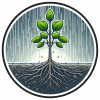



- 16 Resources
- 20 Discussions
- 6 Groups
In a recent publication we tested Underwater Passive Acoustic Monitoring (UPAM) as a feasible non-invasive technique to study the calling behavior of therathened aquatic Andean frogs under natural conditions in the...
6 April 2024
Join our multi-national team at the AI for Biodiversity Change Global Climate Center! We're hiring a Research Data Manager & Tech Coordinator at Ohio State. Support cutting-edge research on climate change &...
15 March 2024
Catch up on the conservation tech discussions and events that happened during World Wildlife Day 2024!
7 March 2024
Do you have a solution to a global problem? Apply to Solve's Global Challenges, which are open to anyone, anywhere in the world between February to April each year.
4 March 2024
Is there really a sustainability data deficiency? We don’t think so.
29 February 2024
How Earth Blox reduced biodiversity impact analysis from 2 months to 1 hour for a global bank.
20 February 2024
The primary focus of the research is to explore how red deer movements, space use, habitat selection and foraging behaviour change during the wolf recolonization process.
10 February 2024
The MS-CC is searching for an enthusiastic Program Manager who can collaborate with faculty, staff, and students at HBCUs and TCUs to successfully deliver communications and program activities driven by the primary goal...
13 December 2023
TagRanger® is a state-of-the-art wildlife finding, monitoring and tracking solution for research, conservation and environmental professionals. With superior configurability for logging data, reporting location and...
23 November 2023
Watch and read our interview with Dr. Kenneth Mubea, Capacity Development Lead at Digital Earth Africa, enabling the use of earth observations to address key conservation challenges across the African continent.
3 November 2023
Article
Five #tech4wildlife people, projects and updates that caught my attention this month. This issue is a naturetech, biodiversity startup edition! Featuring a living map of the biodiversity startup scene, is nature data...
27 October 2023
Listen in to our newest podcast for a behind-the-scenes breakdown with your tech4nature insiders of the latest events, conversations, and news happening in the conservation space.
27 October 2023
April 2024
event
June 2024
event
October 2024
February 2024
| Description | Activity | Replies | Groups | Updated |
|---|---|---|---|---|
| I got assistance. super grateful! |
|
Climate Change, Community Base, East Africa Community, Conservation Tech Training and Education | 21 hours 41 minutes ago | |
| Sounds good. Just sent you a private message. |
|
Climate Change, Conservation Tech Training and Education, Sensors | 5 days 7 hours ago | |
| Just finished my PPWC training courtesy of Wildlabs. Will do much better in my greening initiative from new lessons learned.... |
|
Climate Change | 5 days 10 hours ago | |
| This is so cool @Mauricio_Akmentins - congrats and look forward to seeing your project evolve! |
|
Acoustics, Biologging, Climate Change, Conservation Tech Training and Education, Data management and processing tools, Emerging Tech, Open Source Solutions, Protected Area Management Tools, Sensors, Software and Mobile Apps | 1 week 5 days ago | |
| Thank you Carly, I will definitely take a look. |
|
Acoustics, Biologging, Climate Change, Conservation Tech Training and Education, Data management and processing tools, Remote Sensing & GIS, Software and Mobile Apps | 4 weeks 1 day ago | |
| Hi Danilo. you seem very passionate about this initiative which is a good start.It is an interesting coincidence that I am starting another project for the coral reefs in the... |
|
Acoustics, AI for Conservation, Biologging, Camera Traps, Citizen Science, Climate Change, Community Base, Connectivity, Drones, Emerging Tech, Human-Wildlife Conflict, Open Source Solutions, Sensors, Software and Mobile Apps, Wildlife Crime | 2 months 2 weeks ago | |
| I dont have anything written up but I can tell what parts we used and how we tested.Its pretty straightforward, we used this M10 Enclosure Vent from Blue Robotics: Along with... |
|
Build Your Own Data Logger Community, Acoustics, Camera Traps, Climate Change, East Africa Community, Marine Conservation, Open Source Solutions, Protected Area Management Tools | 3 months ago | |
| Thank you for this! Will take a look. |
|
Climate Change, Conservation Tech Training and Education, East Africa Community, Remote Sensing & GIS | 3 months ago | |
| Hi folks! Happy 2024 and thanks in advance for your patience in case I over-used tags. If you’re using any form of natural language... |
|
AI for Conservation, Citizen Science, Climate Change, Conservation Tech Training and Education, Data management and processing tools, Early Career, East Africa Community, Emerging Tech, Ending Wildlife Trafficking Online, Ethics of Conservation Tech, Human-Wildlife Conflict, Open Source Solutions, Software and Mobile Apps, Wildlife Crime, Women in Conservation Tech Programme (WiCT) | 3 months 1 week ago | |
| Will you accept personal/hobbyist focused on conservation on their small plots of land (10-100 acres)?I would, and know others, who would happily pay more than the official... |
|
Camera Traps, Climate Change, Community Base, Connectivity, Emerging Tech, Human-Wildlife Conflict, Sensors, Wildlife Crime | 3 months 4 weeks ago | |
| Hi Eva, Me and my colleagues run a small NGO based on Yogyakarta in Indonesia, although our projects are spread around the country. One of our active project is working with... |
|
Community Base, Biologging, Citizen Science, Climate Change, Human-Wildlife Conflict, Marine Conservation, Remote Sensing & GIS | 3 months 4 weeks ago | |
| Stefano Puliti joined Variety Hour to share his work using 3D photogrammetric data from UAVs for pre- and post-harvest inventory of forest... |
|
Climate Change, Data management and processing tools, Drones, Remote Sensing & GIS | 6 months 1 week ago |
Involve our young learners in climate change action.
27 March 2024 3:24pm
Seeking Knowledge/Resources about Soil Monitoring
10 April 2024 9:53pm
12 April 2024 2:32pm
Hi Frida.
We are currently doing soil monitoring for ecological restoration in Australia with an organization called Bush Heritage Australia. It's been ongoing for about four years and it's in collaboration with BHA and also Monash University's soil science department. There's more info about the project here:
14 April 2024 12:21am
Hi! If you wouldn't mind, would we be able to exchange emails and connect? I'd love to have a short discussion and get some feedback regarding my senior project
14 April 2024 1:50pm
Sounds good. Just sent you a private message.
Wildlabs PPWC course
14 April 2024 11:12am
WILDLABS AWARDS 2024 - Underwater Passive Acoustic Monitoring (UPAM) for threatened Andean water frogs
30 March 2024 3:54pm
2 April 2024 2:35pm
Thanks @carlybatist for your suggestions! In deed we are looking for open code/free access alternatives for automated species recognition
5 April 2024 12:13pm
Congratulations, very exciting! Keep us updated!
7 April 2024 6:09pm
This is so cool @Mauricio_Akmentins - congrats and look forward to seeing your project evolve!
Underwater advertisement call of the threatened Telmatobius rubigo (Anura: Telmatobiidae
6 April 2024 9:56pm
Leveraging Actuarial Skills for Conservation Impact
15 March 2024 12:31pm
19 March 2024 6:35pm
Thank you for your response Akiba. I will have a look. 👏🏻
19 March 2024 7:52pm
I would look into the TNFD (Taskforce on Nature-Related Disclosures), Finance for Biodiversity, Accounting for Nature, etc. which are all focusing on how to incorporate nature risk into corporate reporting and sustainability frameworks!
20 March 2024 3:48pm
Thank you Carly, I will definitely take a look.
Data Manager and Technology Coordinator, ABC Global Climate Center
15 March 2024 5:01pm
Here's what you missed at World Wildlife Day 2024
7 March 2024 9:02pm
15 March 2024 2:42pm
MIT's Solve Global Challenges 2024
4 March 2024 11:26am
Data data everywhere, but not a byte to use!
29 February 2024 7:13am
Scaling biodiversity scoring for supply chains aligned with TNFD
20 February 2024 9:44am
Post-doc possition - Field spanning movement ecology, ecology of fear, bio-logging science, behavioral ecology, and ecological statistics
10 February 2024 7:20am
Fast-track NbS investments with in-house due diligence
7 February 2024 3:42pm
Southern African Wildlife Management Association Conference 2024
6 February 2024 12:20pm
Passionate engineer offering funding and tech solutions pro-bono.
23 January 2024 12:06pm
26 January 2024 3:18pm
Hi Krasi! Greetings from Brazil!
That's a cool journey you've started! Congratulations. And I felt like theSearchLife resonates with the work I'm involved round here. In a nutshell, I live at the heart of the largest remaining of Atlantic forest in the planet - one of the most biodiverse biomes that exist. The subregion where I live is named after and bathed by the "Rio Sagrado" (Sacred River), a magnificent water body with a very rich cultural significance to the region (it has served as a safe zone for fleeing slaves). Well, the river and the entire bioregion is currently under the threat of a truly devastating railroad project which, to say the least is planned to cut through over 100 water springs!
In face of that the local community (myself included) has been mobilizing to raise awareness of the issue and hopefully stop this madness (fueled by strong international forces). One of the ways we've been fighting this is through the seeking of the recognition of the sacred river as an entity of legal rights, who can manifest itself in court, against such threats. And to illustrate what this would look like, I've been developing this AI (LLM) powered avatar for the river, which could maybe serve as its human-relatable voice. An existing prototype of such avatar is available here. It has been fine-tuned with over 20 scientific papers on the Sacred River watershed.
And right now myself and other are mobilizing to manifest the conditions/resources to develop a next version of the avatar, which would include remote sensing capacities so the avatar is directly connected to the river and can possibly write full scientific reports on its physical properties (i.e. water quality) and the surrounding biodiversity. In fact, myself and 3 other members of the WildLabs community have just applied to the WildLabs Grant program in order to accomplish that. Hopefully the results are positive.
Finally, it's worth mentioning that our mobilization around providing an expression medium for the river has been multimodal, including the creation of a shortfilm based on theatrical mobilizations we did during a fest dedicated to the river and its surrounding more-than-human communities. You can check that out here:
Let's chat if any of that catches your interest!
Cheers!
2 February 2024 1:22pm
Hi Danilo. you seem very passionate about this initiative which is a good start.
It is an interesting coincidence that I am starting another project for the coral reefs in the Philipines which also requires water analytics so I can probably work on both projects at the same time.
Let's that have a call and discuss, will send you a pm with my contact details
There is a tech glitch and I don't get email notifications from here.
Let's save our environment
31 January 2024 12:52pm
Remote Sensing and Research group at Dedan Kimathi University have come up with this ebook after a project observing the deterioration of part of the aberdare.
I always welcome efforts that involve young learners so that they benefit and participate. Thank you RSRG Team.
1st Joint International Scientific Conference
23 January 2024 8:34am
Ignite Labs: Space for Nature & Biodiversity Series
21 January 2024 2:46pm
Kenya Forest Club, Central Region – Kenya Forest Club
20 January 2024 2:53pm
It has been an exciting challenge as a member of Kenya Forest Club whose main aim is solving climate change challenges through early childhood education and training, with a particular interest in forestry.
The club hopes to have members in all schools and setup of tree nurseries
Recycled & DIY Remote Monitoring Buoy
15 January 2024 1:14am
15 January 2024 9:17pm
Hello fellow Brett. Cool project. You mentioned a waterseal testing process. Is there documentation on that?
18 January 2024 10:25am
I dont have anything written up but I can tell what parts we used and how we tested.
Its pretty straightforward, we used this M10 Enclosure Vent from Blue Robotics:
Along with this nipple adapter:
Then you can use any cheap hand held break pump to connect to your enclosure. You can pump a small vacuum in and make sure the pressure holds.
Here's a tutorial video from blue robotics:
Let me know if you have any questions or if I can help out.
Cold-Weather Soundscapes
Information to the young who are the future
8 January 2024 4:35pm
12 January 2024 11:48am
Great work @CathyNj kindly check out the below opportunity. I reckon you may find it useful for your work.
"Join Planet Ed and The Nature Conservancy for the Planet Media Call for Pitches to Shape the Future of Climate Education for Kids!"
13 January 2024 4:08pm
Thank you for this! Will take a look.
Presentation opportunity: Text analysis for conservation (NACCB 2024)
8 January 2024 4:05pm
Apply to Beta test Instant Detect 2.0
11 May 2023 10:55am
21 December 2023 3:48am
Will you accept personal/hobbyist focused on conservation on their small plots of land (10-100 acres)?
I would, and know others, who would happily pay more than the official conservationists rate for the service, which could help to further subsidize the project. (Referring to your statement here: https://wildlabs.net/discussion/instant-detect-20-and-related-cost)
Seeking Host Organisations for Travel Scholarship Application
19 December 2023 12:54am
20 December 2023 3:07am
Hi Eva,
Me and my colleagues run a small NGO based on Yogyakarta in Indonesia, although our projects are spread around the country. One of our active project is working with the movement ecology of Sunda gharials in Berbak-Sembilang National Park. One of the other is for Malayan Giant Turtle conservation using one-plan approach, which we are planning to start in situ phase. We can't give you promise about anything, but are able to be the host organization and would love to talk the opportunity!
Cheers,
Dhanu
13th International Conference on Climate Informatics
18 December 2023 12:20pm
MS-CC Program Manager, Collaboratory in Climate Science
13 December 2023 9:16am
ICOTEQ launch TAGRANGER® system of products
23 November 2023 1:25pm

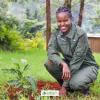



















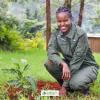

















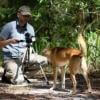



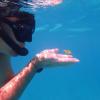



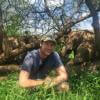

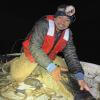
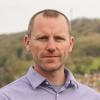
5 April 2024 4:01pm
Hi Cathy
I can't help personally but on seeing your post reached out to a contact who's previously been involved in the British Cartographic Society in case they had any ideas. Their advice:
"I would suggest that she becomes a member of British Cartographic Society (£45 or so) and then writes for/becomes an editor. Then, she will be able to apply for a funding budget for travel... as long as she also writes about the conference! It's a bit long winded, but I am sure that just being an Editor would be an advantage to her anyway."
I hope that helps (or that you find an easier way to get to the conference :D ) - good luck!
Here's their website -